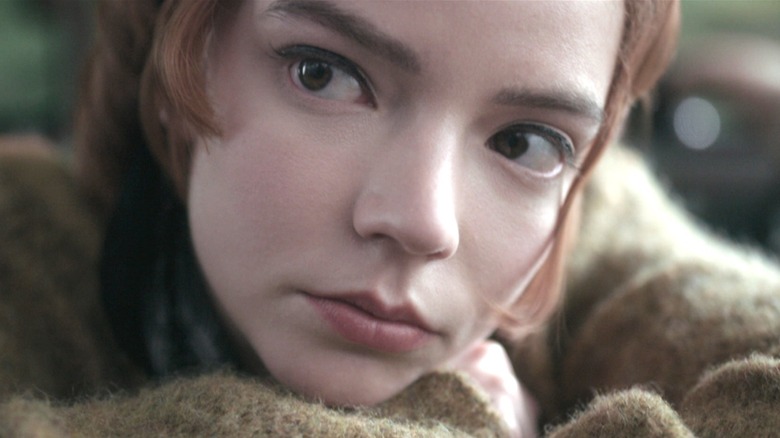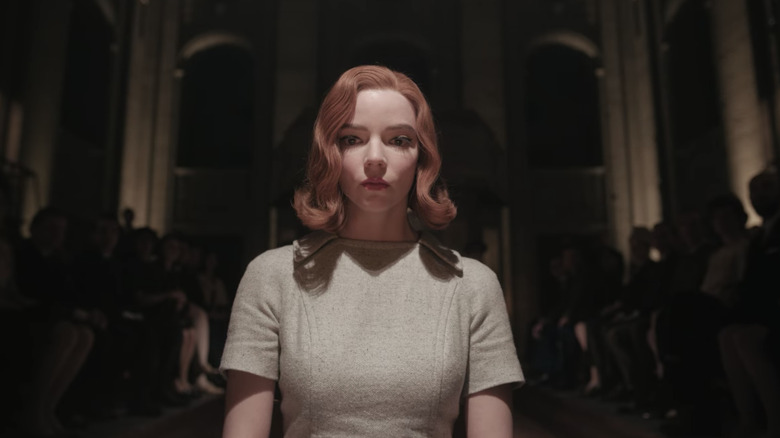Netflix Settles Eye-Popping Queen's Gambit Lawsuit
When Netflix's period drama "The Queen's Gambit" first hit the streaming giant back in 2020, it became an international phenomenon — achieving an immense and unprecedented amount of success not unlike 2021's "Squid Game." Indeed, just four weeks after its initial release, "The Queen's Gambit" was already the most successful scripted limited series in Netflix's history, ranking top 10 in viewership across 92 countries, and #1 overall in 63 countries (via Deadline).
The series itself focuses on a fictitious chess prodigy named Elizabeth Harmon (Anya Taylor Joy), who dreams of becoming a chess grandmaster. An orphan who develops an addiction to drugs and alcohol at an early age, Harmon's story is as much about overcoming her own inner demons as it is defeating her chess opponents. Although Harmon herself was not a real person, the series grounds itself in the real world of chess during the 1960s with references to real-life chess grandmasters — such as Nona Gaprindashvili, a Georgian chess player who also happened to be the women's world chess champion at the time.
Although this particular reference to Gaprindashvili only comes in the form of a small throwaway line in the series' final episode, Gaprindashvili actually took legal action against the series for this line, claiming that she found the show's portrayal of her to be both sexist and belittling.
Why Netflix was sued over The Queen's Gambit and how it settled
The quote in question comes after Elizabeth Harmon defeats a male opponent at a chess tournament in Moscow, when a commentator implies that Harmon's achievement is even greater than those of Nona Gaprindashvili, whom he claims has never faced a man before.
In truth, by 1968 — the year in which Harmon's game is played in the series — Gaprindashvili had already competed against 59 men. Gaprindashvili sued Netflix for defamation, asserting that the line had belittled and defamed her career, on top of the fact that the line itself was completely false (via Variety).
Although Netflix originally attempted to have the lawsuit dismissed, the streaming giant ultimately agreed to settle the lawsuit on September 6, 2022. U.S. District Judge Virginia Phillips argued that, despite the fictitious nature of the series itself, the line is still defamatory because it disparages a real person. "The fact that the series was a fictional work does not insulate Netflix from liability for defamation if all the elements of defamation are otherwise present," the judge explained.
Although it's unclear as of right now what exactly this settlement might entail, it's certain to be welcome news for Nona Gaprindashvili. Netflix must be wondering whether it was worth including this small throwaway reference, considering all the trouble it ended up causing down the line.

